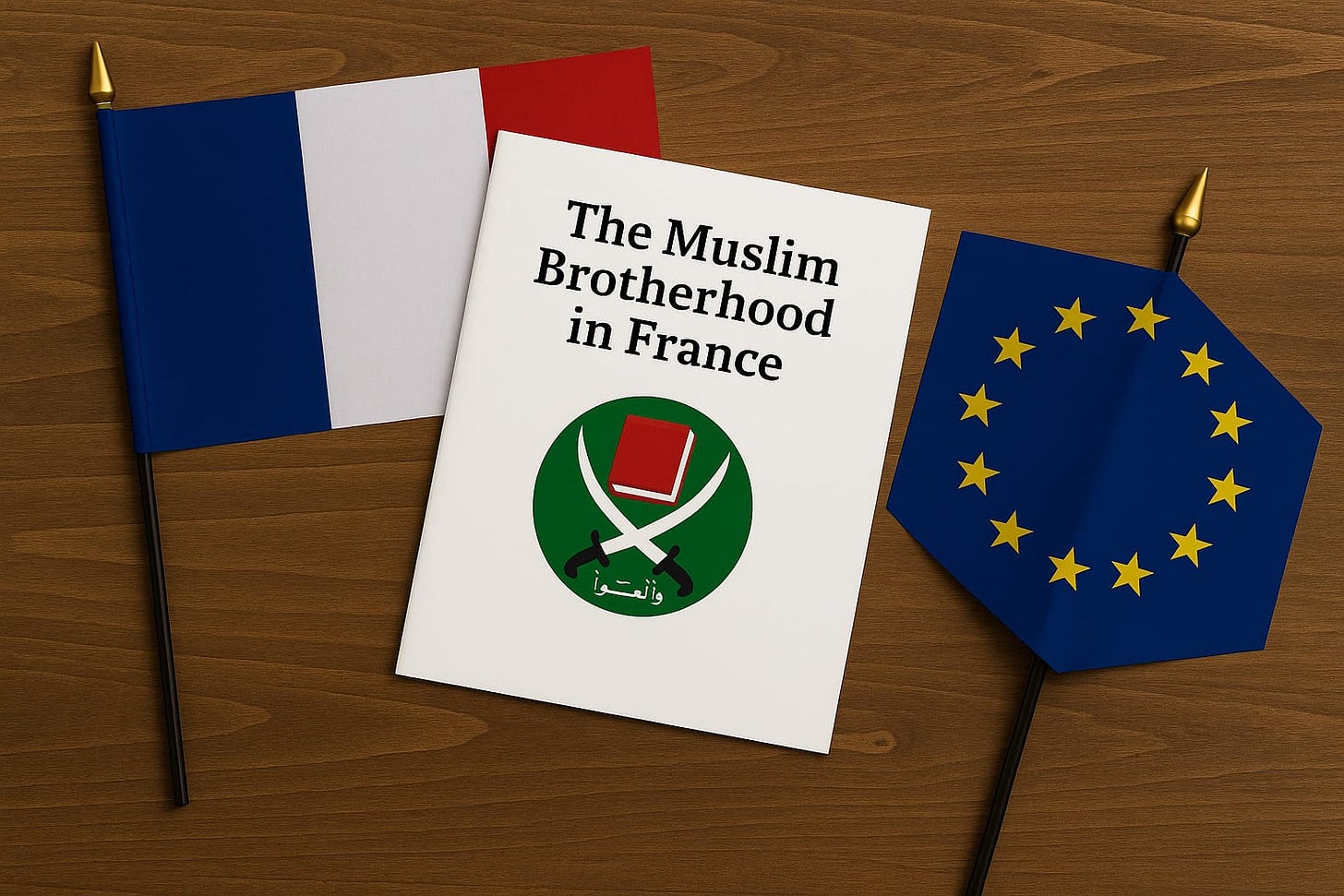New Government Report Reveals Extensive Muslim Brotherhood Influence in France
The Report, Commissioned by the French Government, Details how the Muslim Brotherhood Quietly Influences French Mosques, Politics, and Social Services in pursuit of its agenda

A newly released government-commissioned report paints a detailed and troubling picture of the Muslim Brotherhood’s growing influence in France, warning that the group’s structured Islamist agenda poses a serious challenge to national cohesion and secular values.
The report, based on extensive fieldwork and intelligence gathered through early 2024, reveals how the Brotherhood has methodically embedded itself within French Muslim communities, operating through a secretive core while projecting a public image of integration and moderation.
At the heart of this operation is a small, tightly controlled “restricted circle” of militants, estimated at only a few hundred individuals, who govern a broader network of affiliated groups and activists.
Although the Brotherhood’s political power has waned in some Middle Eastern countries since the fall of Egypt’s Mohamed Morsi in 2013, the report documents a clear strategic pivot to Europe, with France serving as a key hub. The French branch, alleged to be represented primarily by the organization Musulmans de France, oversees dozens of mosques and cultural centers, providing religious education, social services, and community organizing. European coordination is largely channeled through the Council of European Muslims, led by Franco-Tunisian and German-Egyptian figures who also oversee fundraising and ideological dissemination.
The report emphasizes the Brotherhood’s use of a “double discourse” strategy — publicly promoting peaceful coexistence and civic integration while privately pursuing Islamist objectives aimed at reshaping society according to their interpretation of Islamic law. This includes cultivating a new generation of influential preachers and community leaders known as “predicators 2.0,” who actively spread Brotherhood ideology online and in local settings.
Of particular concern is the role of antisemitism within the Brotherhood’s ideology. The report documents how antisemitic rhetoric is not incidental but deeply woven into the group’s worldview, frequently linking Israeli policies to Nazi Germany and justifying violent jihad through associated groups like Hamas. This hostility has grown more pronounced following the October 2023 attacks, with some Brotherhood-affiliated mosques in France increasing anti-Israel and antisemitic discourse to mobilize support and silence critics. Moreover, the Brotherhood strategically uses accusations of “Islamophobia” to delegitimize government efforts and protect its networks.
The report concludes with a call for a balanced, multi-faceted response. French authorities are urged to improve monitoring of Brotherhood-linked groups while simultaneously supporting moderate Muslim voices who reject extremist ideology. Policy recommendations include enhancing transparency in religious institutions, investing in civic education, and fostering open dialogue to counter the Brotherhood’s dual messaging strategy.
In 2024, the European Leadership Network (ELNET) published a series of reports highlighting the presence of organizations allegedly connected to the Hamas terror group operating across Europe, including in France. Hamas originated as an offshoot of the Muslim Brotherhood.





They are being successful in the US.